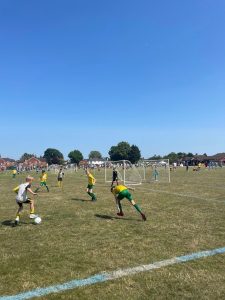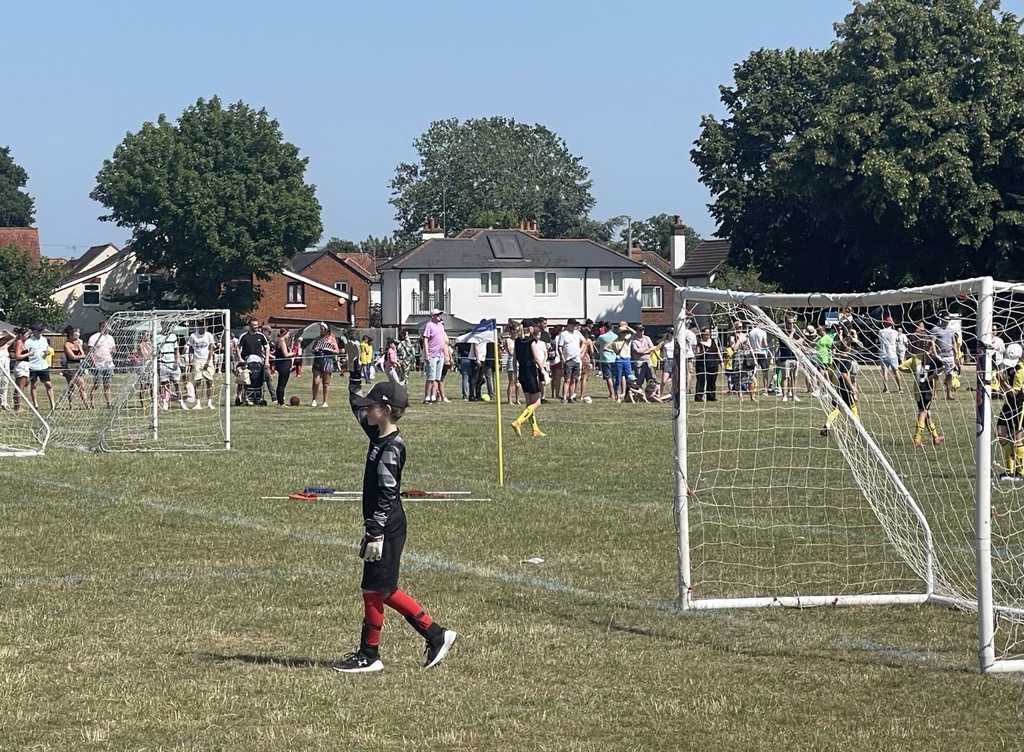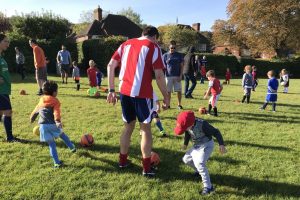Social Mobility
With the cost of living crisis affecting everyone in the country and rising inflation, social mobility is a highly relevant topic. It is important that everyone should have access to the same opportunities regardless of their background and the circumstances in which they were born, but unfortunately, this is not the reality for everyone in the UK. Take a look at our Social Mobility Christmas Campaign Here.
Social mobility broadly refers to the relationship between an individual’s socio-economic situation and their future life outcomes. The Social Mobility Commission, which advises the government, defines social mobility as “the link between a person’s occupation or income and the occupation or income of their parents.”
A recent Demos and The Co-operative Group report introduces the term ‘The Opportunity Effect’ to describe the substantial boost social mobility can give to business outcomes. According to the Guardian, the researchers showed the UK was missing out on £19bn a year in GDP growth as a result of this “systemic failure” to promote social mobility, and found, having surveyed 531 senior business leaders, that promotion of social mobility was linked to higher turnover. It also details how in the UK, people from “lower socioeconomic backgrounds” are “far less likely to earn good incomes, even after accounting for levels of education”, with the World Economic Forum’s Global Social Mobility Index 2020 ranking the UK 21st out of 82 economies.
Sport and Social Mobility

According to The Youth Sports Trust, sports participation in school is associated with higher levels of well-being for young people. It also shows that participation in sport is a significant predictor of self-belief and mental toughness and the continued promotion of school sport throughout a child’s time at school, up to and including during exams, should be encouraged. In 2017, research from The Sutton Trust found that 88% of young people, 94% of employers and 97% of teachers felt that life skills are as important or more important than academic qualifications for young people’s future success.
A study from the Education Policy Institute proves that pupils from disadvantaged backgrounds are less likely to take up extra-curricular activities than their better-off peers There are considerable gaps in access to extracurricular activities, with students from independent schools much more likely to go to sports clubs or clubs for hobbies, arts or music; with attendance linked to high rates of progression to both higher education and employment.
Football as a case example
Football is widely recognised as the most popular sport in the world and is certainly the most popular sport in the UK. The modern game began in 19th century England and the sport is an iconic part of the UK’s culture and identity. Football is a highly accessible sport and unlike many other English sports is rooted in working-class history. Some of its biggest stars from David Beckham to Diego Maradona are touted as working class heroes which is partly why, for many, the sport represents the aspiration of social mobility. Interestingly, research from The SuttonTrust found that in the 2024 Paris Olympics, 33% of Team GB’s medallists attended fee-paying schools with sports like rowing, equestrian events and swimming being dominated by privately educated individuals. Comparatively, this summer’s men’s Euros football team had just 15% of its players who attended independent schools, and the women’s football World Cup squad in 2023 had 0%.
While football offers accessible opportunities to young people, there are still barriers to joining clubs and regular training: most clubs charge for attendance and there is a need for a kit and football boots. This is where community football clubs become a vital part of local communities and provide opportunities to young people. This is why whatimpact is partnering with SportInspired, Center of Excellence, and Birmingham Youth Sports Academy, to collect kit and boot donations for these impactful football clubs across England. We welcome any other football club to join our list from England, Wales, Scotland and Northern Ireland.
Case Study: Center of Excellence
Center of Excellence is a community group based in Grahame Park in Barnet. They offer a wide variety of community support from medical to housing. In 2022, Hawa Abdi with the support of Sport Inspired, set up a children’s football club as part of the group to offer the chance for young people in the community to come together every week and develop their skills and confidence.
The club relied on funding from the London Mayor’s grants which they have sadly lost in grants decision in Sep 2024. The loss of funding poses a serious threat to the club, with costs for venue hire and coaches. There was no football club in the area when Hawa began, and if it disappeared, there would be no clubs or similar opportunities in the area. All this opportunity for tens of children would be lost only because a couple of hundred pounds in a month is missing.
Grahame Park is among the most deprived areas in Barnet and with the cost of living crisis hitting families here particularly hard, parents are faced with choosing between bringing their children to football training or being able to buy enough food. This shows the vital importance of accessible community clubs like the Center of Excellence and the importance of keeping them not just alive but thriving.
Hawa has seen how football transforms people’s lives, how the club can help parents care for children during weekends and holidays and how it can help children find a sense of belonging. To her, the most important things are putting a smile on children’s faces and helping her community.
Listen to Hawa and Samia from Center of Excellence and Richard from Sports Inspired discussing the power of sports, football particular and impact on the deprived communities on whatimpact’s latest podcast episode here.
For more on how to donate to our Social Mobility Christmas Campaign click here.







